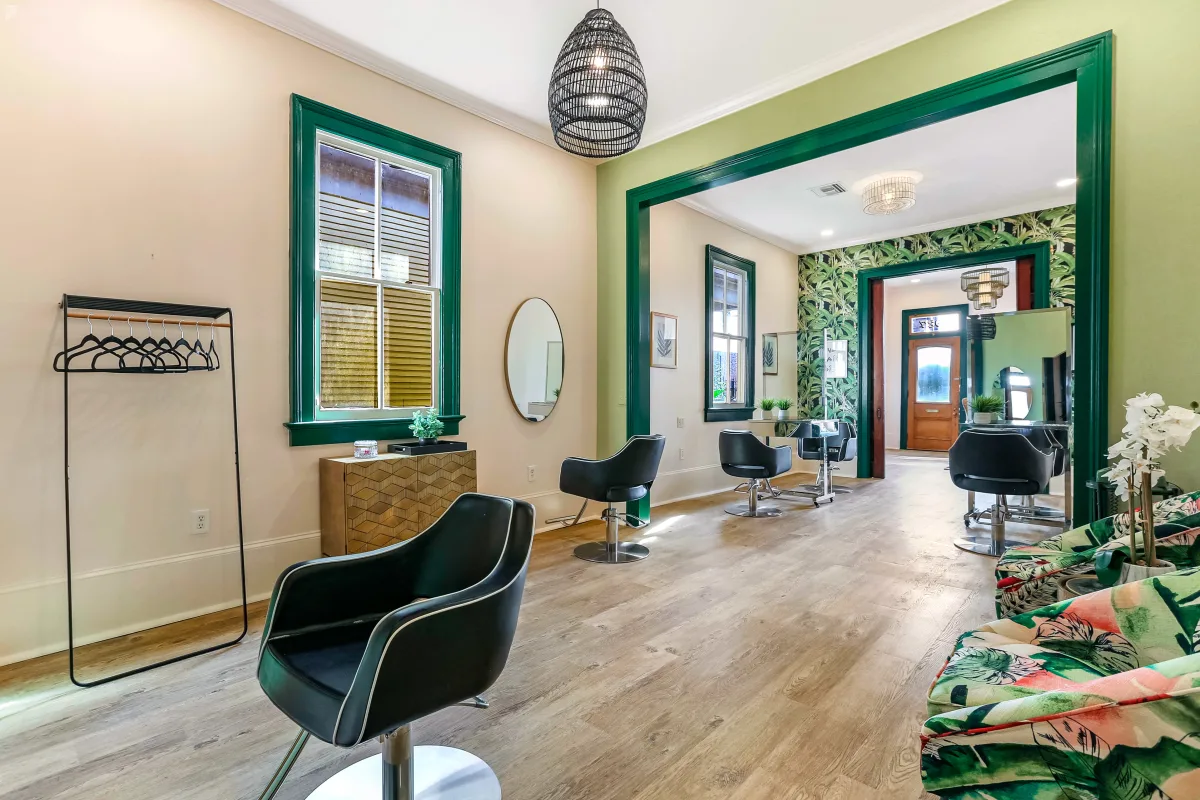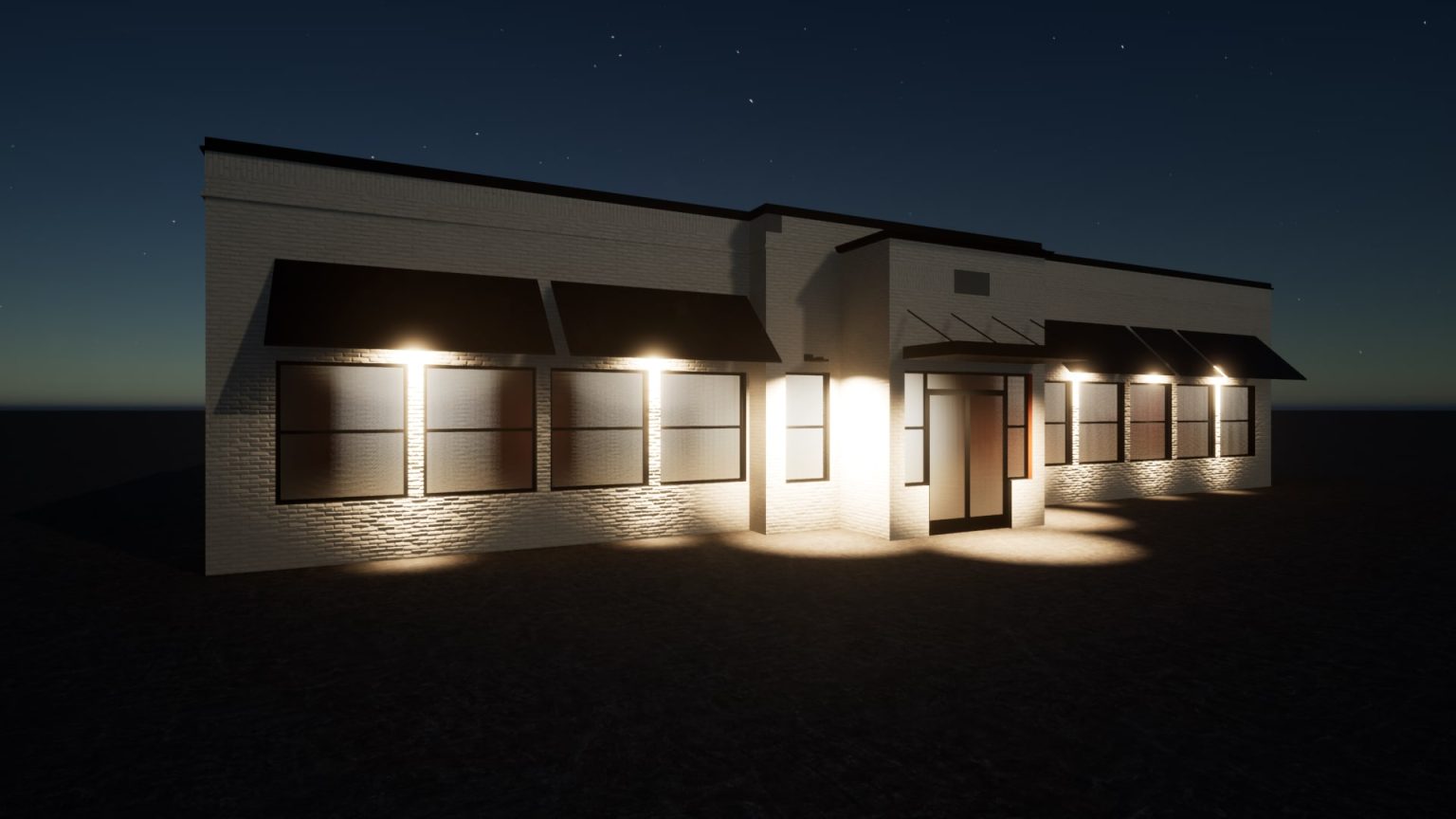Roomy Hair Salon Suites for Rent: Expand Your Brand
Roomy Hair Salon Suites for Rent: Expand Your Brand
Blog Article
Strategic Choices: Weighing the Benefit of Renting Versus Owning a Beauty Salon Room to Enhance Long-Term Success and Financial Stability
When it comes to developing a hair salon service, one of the crucial choices that proprietors should very carefully think about is whether to lease or own the area in which they run. The selection in between renting out and owning a salon space can have a substantial influence on the long-term success and economic health of the organization.

Benefits And Drawbacks of Leasing
When thinking about the choice between renting a beauty salon room or owning one, it is important to consider the advantages and disadvantages of leasing to make an enlightened choice. One key benefit of renting out a beauty salon space is the adaptability it uses. Renting enables hair salon owners to check different areas or upscale their business without the commitment of a lasting home loan. Furthermore, leasing generally entails less in advance costs, making it a more accessible alternative for brand-new hair salon owners or those with budget plan restraints.

Financial Variables to Think About

Taking into consideration the monetary implications of renting a salon space versus owning one is necessary for making a knowledgeable organization decision. When reviewing the monetary variables, it is vital to examine the initial costs related to each choice. Leasing a beauty parlor space normally requires a safety and security down payment and regular monthly rent settlements, whereas possessing involves a deposit, mortgage settlements, real estate tax, and upkeep expenditures.
Moreover, the long-lasting economic ramifications differ in between renting out and owning. On the other hand, owning a hair salon room uses prospective equity development and the chance to build assets.
Furthermore, consider the influence on cash money circulation and profitability. Renting might provide lower ahead of time costs, allowing you to allot even more sources to advertising and marketing and company development. On the other hand, possessing requires a considerable first financial investment however may lead to cost financial savings in the lengthy run. Reviewing these financial factors adequately will assist you make a tactical choice that enhances your beauty salon's lasting success and financial practicality.
Functional Adaptability and Control
Optimum functional performance plays a vital role in figuring out the balance between adaptability and control when choosing in between leasing and owning a beauty parlor area. Renting click for source a salon room uses intrinsic adaptability as it permits for less complicated adjustments to changing market problems, consumer preferences, or company requirements. This flexibility is specifically beneficial for new hair salon proprietors or those wanting to test different locations prior to devoting lasting. In addition, renting gives official statement the benefit of not being linked down to a specific home, allowing simpler relocation if needed.
On the other hand, possessing a hair salon space supplies a better sense of control over the building and its operations. Owners have the freedom to tailor the room to their preference, implement long-lasting approaches without the risk of lease terminations, and possibly develop equity gradually. Possession also comes with duties such as residential or commercial property upkeep, insurance policy, and residential property tax obligations, which can influence the general economic dedication.
Ultimately, the decision in between leasing and having need to consider the desired degree of operational versatility and control that straightens with the salon's lasting goals and vision.
Financial Investment Prospective in Possession
Offered the operational considerations discussed previously, discovering the investment capacity in salon ownership loses light on the monetary implications and long-term advantages that feature owning a beauty salon area. Hair salon ownership provides an one-of-a-kind opportunity for entrepreneurs to construct equity and assets gradually. By buying a salon area, proprietors have the possible to take advantage of residential or commercial property recognition, which can function as a useful asset in the future. In addition, having a hair salon gives stability in terms of set home loan settlements, supplying predictability in financial planning compared to fluctuating rental rates.
Moreover, ownership enables higher control over the area, enabling proprietors to personalize and tailor browse around this site the hair salon to their details brand and vision without the restrictions typically imposed by landlords. This degree of control can improve the general customer experience and brand name identity, possibly leading to raised client retention and organization development.
In regards to investment possibility, having a beauty parlor space can likewise open up opportunities for added earnings streams, such as leasing unused space to other beauty specialists or integrating retail sales within the beauty salon. Nail salon. These diversified revenue sources can add to the overall financial wellness and sustainability of the service
Long-Term Stability and Growth
With a focus on sustainability and development with time, establishing long-term stability and promoting growth are pivotal elements of beauty salon ownership. To ensure lasting stability, beauty parlor owners must carefully take into consideration elements such as place, market patterns, and monetary planning. Selecting between renting out and possessing a salon space plays a substantial role in identifying the business's development capacity.
Renting out a salon area offers flexibility and lower first expenses, permitting proprietors to designate sources in the direction of boosting services and marketing initiatives. Nevertheless, long-lasting rental expenses can affect success and restrict the ability to build equity in the residential or commercial property. On the other hand, owning a hair salon space offers stability via taken care of home mortgage repayments and the capacity for residential property gratitude. By having the room, hair salon proprietors have more control over customizing the property to fit their brand and can take advantage of long-lasting asset development.
Inevitably, the choice between leasing and having a salon space must line up with the proprietor's long-lasting business goals and financial purposes. Whether focusing on adaptability or equity building, a critical approach to property possession can considerably impact the beauty parlor's security and development trajectory.
Final Thought
In verdict, the decision in between renting out and owning a beauty parlor space calls for a careful assessment of financial factors, operational adaptability, financial investment possibility, and lasting security. Both options include their own collection of benefits and downsides, and it is vital for beauty salon owners to evaluate these elements to maximize long-term success and financial feasibility. Booth rental. Eventually, the selection between renting out and possessing must be based on a complete analysis of specific organization goals and situations
Report this page